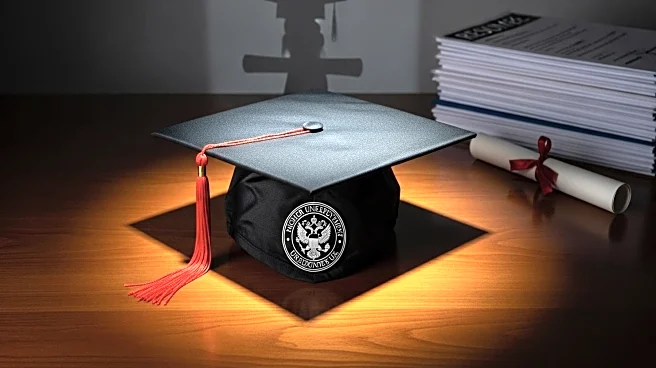What is the story about?
What's Happening?
The Bank of America Institute has released a report indicating that the unemployment rate for recent college graduates in the United States has surpassed that of the overall workforce. Historically, individuals aged 22 to 27 with a bachelor's degree have experienced lower unemployment rates compared to the general population. However, this trend has reversed post-pandemic, with the national unemployment rate at 4.2% as of July 2025, while recent graduates face even higher rates. The report highlights that over 13% of unemployed individuals are 'new entrants,' a figure not seen since 1988. Factors contributing to this shift include a cooling labor market, economic uncertainty, automation, and global trade tensions, which are affecting entry-level positions.
Why It's Important?
This development is significant as it underscores the challenges faced by Generation Z graduates entering the workforce. The diminishing 'safety premium' of a college degree suggests that recent graduates are struggling to find employment, impacting their financial stability and career progression. The integration of artificial intelligence is also disproportionately affecting entry-level workers, further complicating the job market for young individuals. These trends may prompt educational institutions and workforce development agencies to reevaluate their strategies to better prepare graduates for the evolving job landscape.
What's Next?
Stakeholders in education and workforce development are likely to focus on creating targeted support and resources to assist young job seekers. This may include revising curricula to align with current market demands and providing career counseling to navigate the challenges posed by automation and economic shifts. Additionally, policymakers might consider initiatives to stimulate job growth and reduce barriers to employment for recent graduates.
Beyond the Headlines
The broader implications of this trend could lead to a reevaluation of the value of higher education in the U.S. labor market. As the traditional advantages of a college degree diminish, there may be increased interest in alternative career paths and vocational training. This shift could influence cultural perceptions of education and career success, potentially leading to long-term changes in how young people approach their professional lives.
















